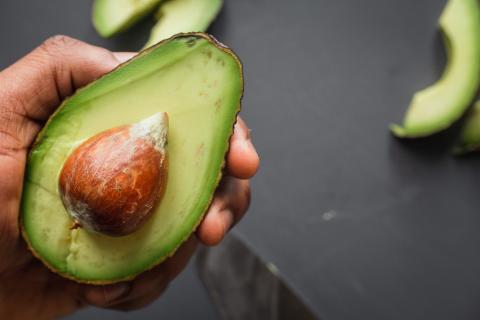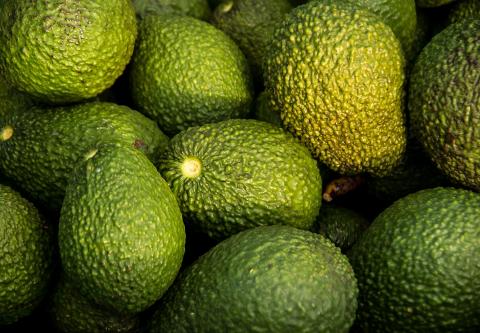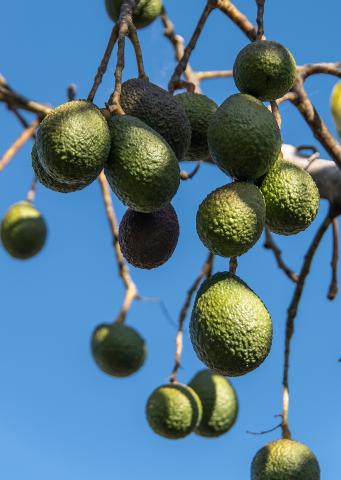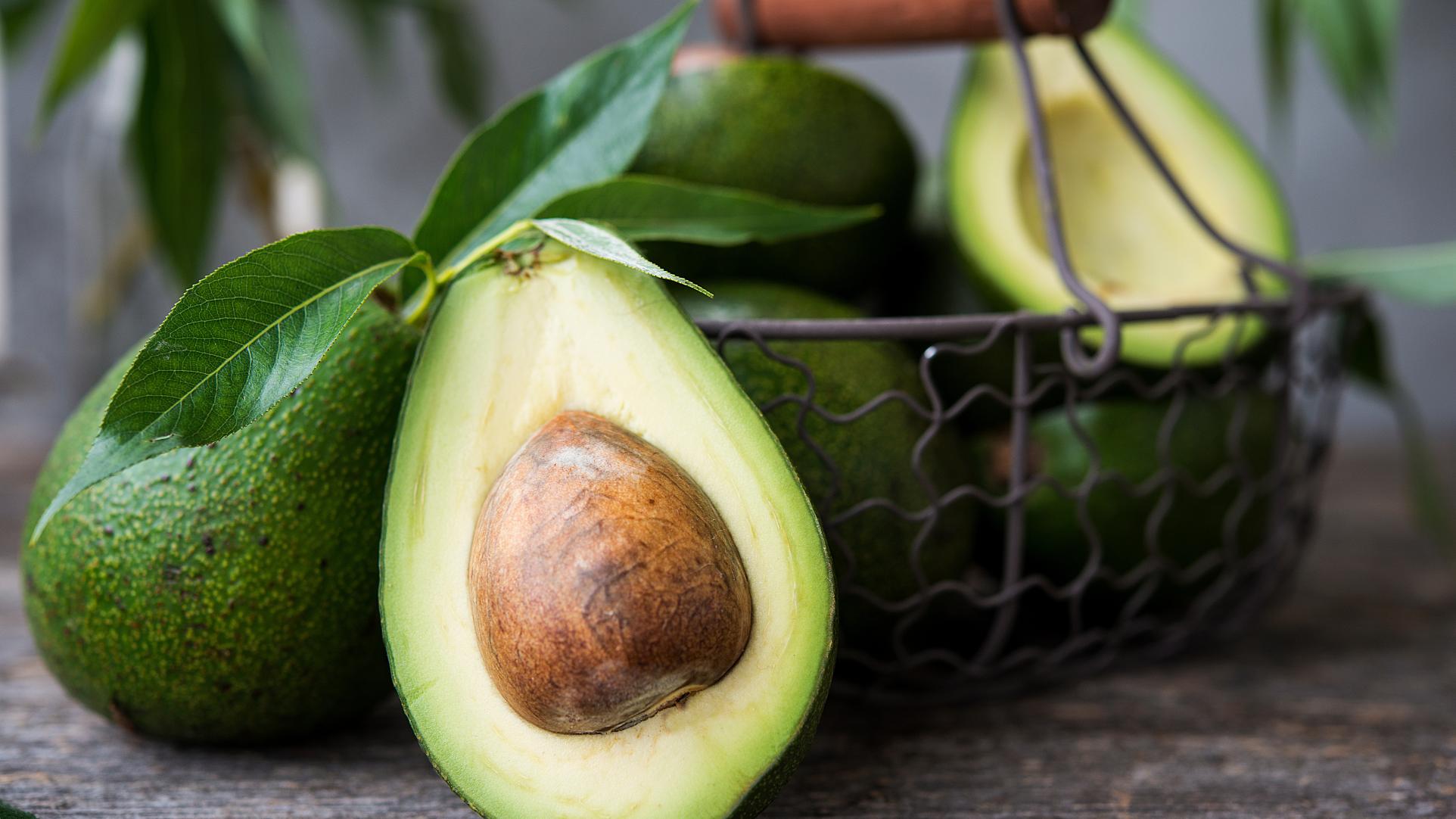Health Benefits of the Avocado Seed
Growing up on the island of Jamaica, avocados (called "pear" by most Jamaicans), while in season, were a staple at almost every meal. We were chasing through the brush to bring back the prized pear to our families or simply sit and eat it as friends. Everyone in my town knew where a pear tree was to be found and avidly watched the tree for the ripening fruit.
Typically, we would have pear and green bananas for breakfast with whatever vegetable was at hand, callaloo (a cousin to spinach) or cabbage. Pear and bread for lunch. Pear and rice for dinner. According to the Jamaican Rural Agricultural Development Authority, the most common varieties grown are Simmonds avocados, ripening in the summer months, and Collinson Lula avocados, ripening in December to February."1 Whatever the growing season for avocado in your region of the world, they are well loved by most people.
The avocado pear belongs to the plant group Persea Americana and is found in almost all kitchens. Traditionally only the creamy, buttery yellowish-green flesh is eaten. "Its fruit, sometimes also referred to as an alligator or avocado pear, is botanically a large berry containing a single large seed."2 It is, therefore, one of those foods mentioned in the Bible as good for food.
God said to the first created man, Adam, "Behold, I have given you every plant yielding seed that is on the face of all the earth, and every tree with seed in its fruit. You shall have them for food" (Genesis 1:29 ESV).
Another Look at the Humble Avocado Seed
"Current research has shown that avocado seeds may improve hypercholesterolemia,3 and be useful in the treatment of hypertension, inflammatory conditions and diabetes." In addition, the research further states, "Seeds have also been found to possess insecticidal, fungicidal, and anti-microbial activities. The avocado seeds are rich in phenolic compounds."4 5

What are the phenolic benefits? Research on antioxidants states, "… phenolic compound in plants exerts diverse pharmacological effects, including antioxidant, antibacterial, antiviral, anticancer, anti-inflammatory, anti-aging, and anti-arteriosclerotic activities."6
So, the next time you are tempted to throw out the avocado seed, think again and upcycle for your health.
Making the Tea
To make the tea, air-dry the avocado seed, keeping the membrane and using it also. Grate the dried seed and add to boiling water: two cups of water to one seed is the usual ratio. Alternatively, adding the whole seed to the boiling water, then removing it after a few minutes to chop it into smaller pieces, is also a good way to go.

Further Benefits of Avocados
The overall health benefits of avocados are worth noting. While I typically write on brain health, the body is a whole and not to be separated simply by brain food and benefits to the other parts. However, that being said, the brain benefits from nutrients found in avocados.
B-Vitamins. Most plant-based eaters must be mindful of their B-vitamins—deficiencies in B-vitamins can lead to various health complications. Avocados are rich in B6. A deficiency in B6 is linked to declining cognition.7
Antioxidant Vitamins. Avocado fruit is a good source of vitamin C.8 Vitamin C acts as one of the neuron transporters in the brain.9
Potassium. The potassium found in an Avocado may control blood pressure. Potassium may help ward off dementia.10
Phenolics. Avocado fruit phenolics may reduce oxidative and inflammatory stress, enhancing blood flow to help maintain vascular health. Good vein health is good brain health, as the veins take the blood to the brain.
Eye Health. Avocados may contribute to eye health. Avocados contain lutein, which is expected to be more highly bioavailable than most other fruit and vegetable sources. Lutein also improves cognition in brain health.11

The Magnesium Connection
Let us have a look at the magnesium connection for brain health. "Magnesium assists with neurological pathways that, when not functioning correctly, are believed to lead to mood disorders like depression and anxiety. Several observational studies have linked lower magnesium levels with increased depression."12
Also, the signs of magnesium deficiency may include:
- Fatigue, weakness
- Poor appetite
- Nausea, vomiting
- Numbness or tingling in the skin
- Muscle cramps
- Seizures
- Abnormal heart rate
Call to Action
In writing about the health benefits of God's plants, we emphasize taking care of our bodies because they are the temple of God (see 1 Corinthians 6:19).
Sadly, we often wait until something is wrong before we attend to our health needs. The adage, "If it ain't broke, don't fix it!" should not be our mainstay regarding our health. The Word of God, the Bible, asks us to offer our best to the Master and to keep our bodies in the best health (see Proverbs 3:9). When God has spared our lives to share the Gospel, more is asked of us in the care of our bodies (see Luke 12:48). Let's prepare for the coming of the Lord as if it is the last day to get it right with our health. Pray. Trust God. Eat to the glory of God (see 1 Corinthians 10:31), and be well.

- https://rada.gov.jm/post-harvest-management-avocado
- https://en.wikipedia.org/wiki/Avocado
- Hypercholesterolemia, also called high cholesterol
- https://pubmed.ncbi.nlm.nih.gov/23448442/
- Dabas, D; Shegog, R. M; Ziegler G. R.; Lambert, J. D. (2013). Avocado (Persea americana) seed as a source of bioactive phytochemicals. Current Pharmaceutical Design.,19(34),6133-6140. https://doi: 10.2174/1381612811319340007.PMID: 23448442.
- Matsumura Y.; Kitabatake M.; Kayano, S-i.; Ito T. Dietary Phenolic Compounds: Their Health Benefits and Association with the Gut Microbiota. Antioxidants 2023; 12(4):880. https://doi.org/10.3390/antiox12040880.
- https://pubmed.ncbi.nlm.nih.gov/14584010/
- USDA (U.S. Department of Agriculture) Avocado, Almond, Pistachio and Walnut Composition. Nutrient Data Laboratory. USDA National Nutrient Database for Standard Reference, Release 24. Washington, DC: U.S. Department of Agriculture; 2011.
- Harrison, F. E,; May, J. M. Vitamin C function in the brain: vital role of the ascorbate transporter SVCT2. Free Radical Biology & Medicine. 2009 Mar 15;46(6):719-30. doi: 10.1016/j.freeradbiomed.2008.12.018. Epub 2009 Jan 6. PMID: 19162177; PMCID: PMC2649700.
- Vintimilla, R. M.; Large, S. E.; Gamboa, A.; Rohlfing, G. D.; O'Jile, J. R.; Hall, J. R.; O'Bryant, S. E.; and Johnson, L. A. The Link between Potassium and Mild Cognitive Impairment in Mexican-Americans. Dementia and Geriatric Cognitive Disorders Extra. 2018. Published online Apr 24; 8(1):151-157. doi: 10.1159/000488483. PMID: 29805381; PMCID: PMC5968281.
- Yagi, A.; Nouchi, R.; Butler, L.; Kawashima, R. Lutein Has a Positive Impact on Brain Health in Healthy Older Adults: A Systematic Review of Randomized Controlled Trials and Cohort Studies. Nutrients. 2021 May 21; 13(6):1746. doi: 10.3390/nu13061746. PMID: 34063827; PMCID: PMC8223987.
- https://www.hsph.harvard.edu/nutritionsource/magnesium/




